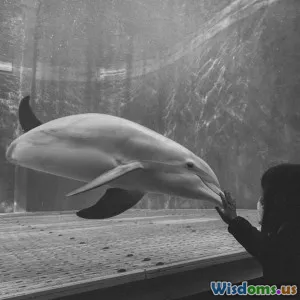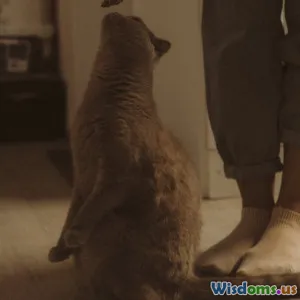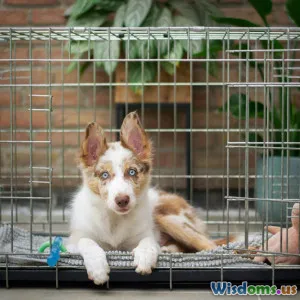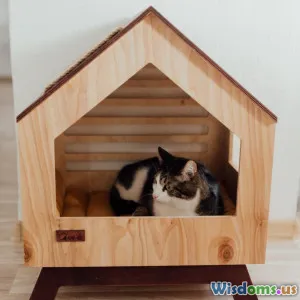
Why Socialization is Key for your Pet
7 min read Unlock the secrets to your pet’s happiness and health through proper socialization techniques. (0 Reviews)
Why Socialization is Key for Your Pet
Pets are more than just companions—they're family members who rely on us to create a nurturing environment where they thrive. Despite their dependence, many pet owners overlook one critical aspect of pet care: socialization. What if you could significantly enhance your pet’s happiness, behavior, and long-term health by simply encouraging positive interactions? In this article, we’ll explore why socialization is foundational for your pet, backed by scientific research, real-world examples, and actionable advice.
Understanding Socialization: Beyond Playdates
Socialization involves exposing your pet to various people, animals, environments, and experiences in a controlled and positive way. This process helps your pet learn to navigate the world confidently rather than reacting with fear or aggression.
Why Is Early Socialization So Important?
Research indicates that the first 3 to 14 weeks of a puppy's life, often called the "sensitive period," dramatically impact their social development. According to the American Veterinary Society of Animal Behavior, puppies introduced to a diverse range of stimuli during this window tend to grow into well-adjusted adults.
Cats, though a bit different, also benefit from social experiences at a young age that reduce fear of strangers and new situations. Lack of socialization during critical periods increases anxiety and behavioral problems such as aggression or withdrawal.
Socialization Is Not Just for Puppies and Kittens
While early life socialization is crucial, it’s never too late to introduce new experiences. Adult animals can learn and adapt, though the process may require greater patience.
The Behavioral and Psychological Benefits of Socialization
Enhancing Social Skills
Well-socialized pets interact comfortably with other animals and humans. Dogs accustomed to other dogs in parks or training classes demonstrate less aggression and more playful, friendly behavior. Cats familiar with gentle petting from various people tend to be more affectionate and less stressed.
Take the example of Bella, a Labrador retriever rescued at nine months old. Initially fearful of other dogs, a structured socialization program involving gradual introduction to calm, vaccinated dogs helped Bella overcome her anxiety, transforming her into a social butterfly.
Reducing Anxiety and Fear
Pets lacking socialization are prone to fear-based responses manifesting as aggression, hiding, excessive barking, or destructive behavior. According to a 2019 study by the University of Lincoln, poorly socialized dogs show significantly higher cortisol levels, a stress hormone, indicating long-term psychological stress.
Conversely, pets accustomed to social interactions show lower stress markers and can adapt better to novel environments such as vet clinics or boarding kennels.
Preventing Behavioral Problems
Early socialization reduces the likelihood of behavior issues that often lead to surrendering pets to shelters. For example, fearful behavior in dogs correlates with bite incidents, meaning socialization can be a public safety issue, too.
How to Socialize Your Pet Effectively: Practical Tips
For Puppies:
- Start Early: During the sensitive period, gently expose your puppy to different people, sounds, surfaces, and other gentle dogs.
- Positive Reinforcement: Use treats and praise to create positive associations—never force your pet into uncomfortable situations.
For Adult Pets:
- Gradual Exposure: Slowly introduce new experiences, watching for signs of discomfort.
- Professional Support: Consider enrolling in training or socialization courses with experienced handlers.
For Cats:
- Safe Spaces: Let cats explore new environments at their own pace, using toys and treats to encourage interaction.
- Interaction with People: Encourage gentle petting by various household members.
Socializing Amid Today’s Unique Challenges
With urban living and tighter pet policies, opportunities for socialization may feel limited. However, arranging controlled visits, attending pet-friendly events, or even scheduled playdates can provide valuable stimuli.
Technology can aid too—video calls with familiar humans or safe interaction with other pets can supplement direct socialization.
Real-World Insights: Socialization in Action
Animal shelters underscore socialization's significance. The ASPCA training programs often focus heavily on socializing shelter animals to increase adoption success rates. Dogs undergoing structured socialization often find forever homes faster.
Professional trainers note that neglected socialization contributes to many relinquished pets struggling with fear or aggression. In contrast, well-socialized pets not only adapt more easily but also establish stronger bonds with their owners.
Conclusion: Socialization as a Cornerstone of Pet Welfare
The journey from a scared, withdrawn animal to a confident, joyful companion starts with socialization. This critical process enriches pets' lives, enabling them to cope with the world’s challenges and enjoy meaningful relationships.
As an owner, investing time and effort in your pet’s social development pays dividends: fewer behavioral problems, increased safety, reduced stress, and most importantly, a happier, healthier pet.
Takeaway quote from Dr. Sophia Yin, renowned animal behaviorist: "Socialization is not a luxury for pets; it's a necessity. It unlocks their potential to become well-adjusted members of your family and community."
Don’t wait—start socializing your pet today and witness the transformation that these essential interactions can bring.
References:
- American Veterinary Society of Animal Behavior (AVSAB). (n.d.). Position Statement on Puppy Socialization.
- King, T., & Landsberg, G. (2019). Stress Responses in Domestic Dogs. University of Lincoln.
- ASPCA Training Resources: Socialization and Behavior.
- Yin, S., The Importance of Socialization, Animal Behavior College.
Rate the Post
User Reviews
Popular Posts




















